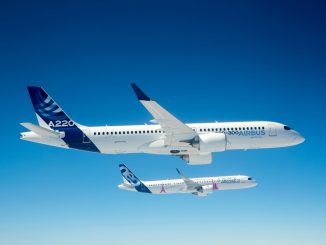
Complaint lodged by a group of travel agencies in June 2020
From March 2020 onwards, the COVID-19 pandemic led to many flight cancellations to and from France. It is in this context that in June 2020, Cediv Travel (a cooperative representing the interests of 254 travel agencies in France) and 55 of its members lodged a complaint with the FCA, alleging several anti-competitive practices:
- The complainants claimed that since March 2020, both IATA and 90 airlines (IATA members or not) had ceased to comply with their obligation to reimburse so-called “seat-only” services (i.e. plane tickets purchased through travel agencies and not combined with accommodation or another travel service) cancelled due to the COVID-19 crisis. Travel agencies also claimed that IATA’s Director had instructed these airlines to give flight credits instead of automatic cash refunds. This practice was likely to constitute a cartel, as the companies would have applied this instruction by suspending the automatic refund procedures used by travel agencies.
- The complainants considered that the same conduct constituted an abuse of a collective dominant position (given that IATA and its members account for around 80% of the French air transport market) as well as an abuse of economic dependence.
In addition to their complaint, travel agencies also requested the FCA to impose interim measures on the airlines to order them (i) to cease all behaviours aiming at refusing to reimburse flights cancelled due to COVID-19 and (ii) to pay back to travel agencies the amounts debited from their accounts for flight tickets cancelled since 1st March 2020. Given the existence of a request for interim measures, the FCA had to consider the case quickly and did so in approximately six months from the moment the complaint was lodged.
No concerted practice on the part of airlines
After analysing the evidence provided by the complainants, the FCA concluded that the airlines’ practice consisting in imposing flight credits instead of immediate refunds was not likely to be qualified as an anti-competitive agreement:
- IATA Director’s letter could not be considered as an instruction given to airlines, as it merely explained the financial difficulties faced by them during the health crisis and described the position IATA intended to take before the regulatory authorities.
- The FCA also considered that there was no link between this communication and the suspension by airlines of the automatic refund procedures used by travel agencies. The FCA stressed that IATA only handles the technical processing of financial transactions through Billing Settlement Plans (which are offsetting systems allowing the automation and simplification of sales and refund procedures between travel agencies and airlines) but does not intervene directly in the approval or rejection of refund requests, which remains at the sole discretion of each airline.
- Even though there is a parallel conduct between the majority of airlines which actually refused to grant refunds, the FCA considered that this parallel conduct was the result of autonomous individual reactions of the airlines, all facing the same major economic crisis resulting from the COVID-19 outbreak.
Absence of abuse of collective dominance or abuse of economic dependence
In addition, the FCA concluded that none of the evidence provided by the complainants suggested the existence of a collective dominant position in the air transport market. The FCA highlighted that the 90 airlines involved represent almost all the companies flying into France and therefore do not form a tight oligopoly. Moreover, they are of varying sizes and business models, and IATA membership does not imply any coordination of the commercial policies of airlines, so that any possibility of coordination seems unlikely within this “group” according to the FCA.The FCA further noted that seat-only services would only represent 3% of travel agency revenues. The alleged situation of economic dependence of travel agencies with regard to airlines was therefore not established. And in any event, the FCA stressed that the airlines’ refusal to issue refunds could not constitute an abuse towards the travel agencies as such refusal only affects the passengers (a travel agency being an intermediary in the sale of seat-only services).
A decision not entirely clearing the airlines’ conduct
In the light of the foregoing, the FCA considered that there was no evidence of anticompetitive practices on the part of the airlines for not having refunded flights cancelled because of the COVID-19 outbreak. It therefore rejected the complaint lodged by the travel agencies and, consequently, their request for interim measures.However, the FCA’s decision should not entirely exempt the involved airlines from any other legal proceedings for their conduct during the COVID-19 health crisis. The FCA stressed that it cannot be excluded that many airlines did not comply with their European regulatory obligations by forcing passengers to accept flight credits. The assessment of the compliance of such behaviour with the above-mentioned regulation does not fall within the competence of the FCA, but within that of the French Directorate General for Civil Aviation.
Source
- FCA’s press release of 8 December 2020 (in English): https://www.autoritedelaconcurrence.fr/en/press-release/failure-refund-cancelled-flights-no-anticompetitive-practices-identified
- FCA’s Decision of 8 December 2020 (in French): https://www.autoritedelaconcurrence.fr/sites/default/files/integral_texts/2020-12/20d21.pdf




